You might think selling a used RV is easy, but it can be a real pain as a private seller. From repairs to advertising to negotiating the terms of a sale, there’s a lot to consider if you’re selling a motorhome or travel trailer on your own.
Luckily, there are resources to help you sell a used RV and ways to improve your RV’s resale value so you can get the best return possible. Let’s discuss best practices for selling a used RV.
Why Sell your Used RV?
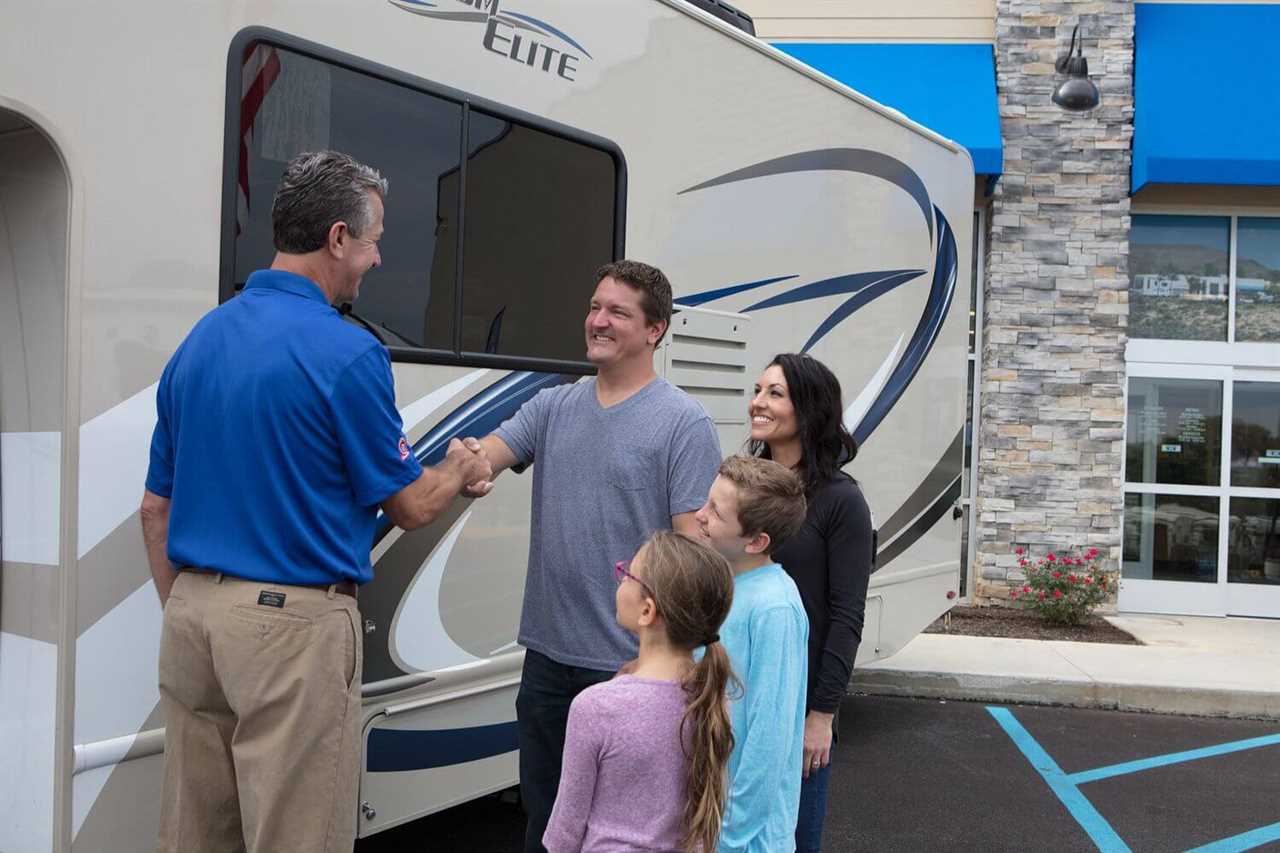
Photo by Camping World
Maybe your RV is starting to feel cramped, and you’re ready for a larger RV. In this case, you might consider trading in your RV in search of a new unit. Trading in at Camping World allows you to deduct the value of your trade-in from the taxes owed on a new unit.
Possibly you’re concerned about winterizing your RV and storing it properly. Or you want your RV off your hands so you can focus on other things. Consigning your RV can be a good option in this case, as your RV can live at a Camping World dealership until it sells, at which point they write you a check minus a consignment fee.
Or maybe life circumstances are making RV adventures difficult for you right now. You can sell your RV and get a check in hand to spend on whatever you wish, although you don’t get the tax benefits that come with trading in your RV. If you do sell outright, you can always rent an RV down the road.
Whatever your motivation, Camping World has options to help.
Why Sell a Used RV Now?
Now is a great time to sell a used RV. The higher prices of new RVs are making more people consider the benefits of a used RV. Plus, so many folks have tried RVing for the first time in recent years, and they’re hooked.
Several factors may be responsible for the uptick in RV popularity, but one thing is important to remember as a seller: when demand outpaces supply, it is a great time to sell a used RV.
How Hard is it to Sell a Used RV?
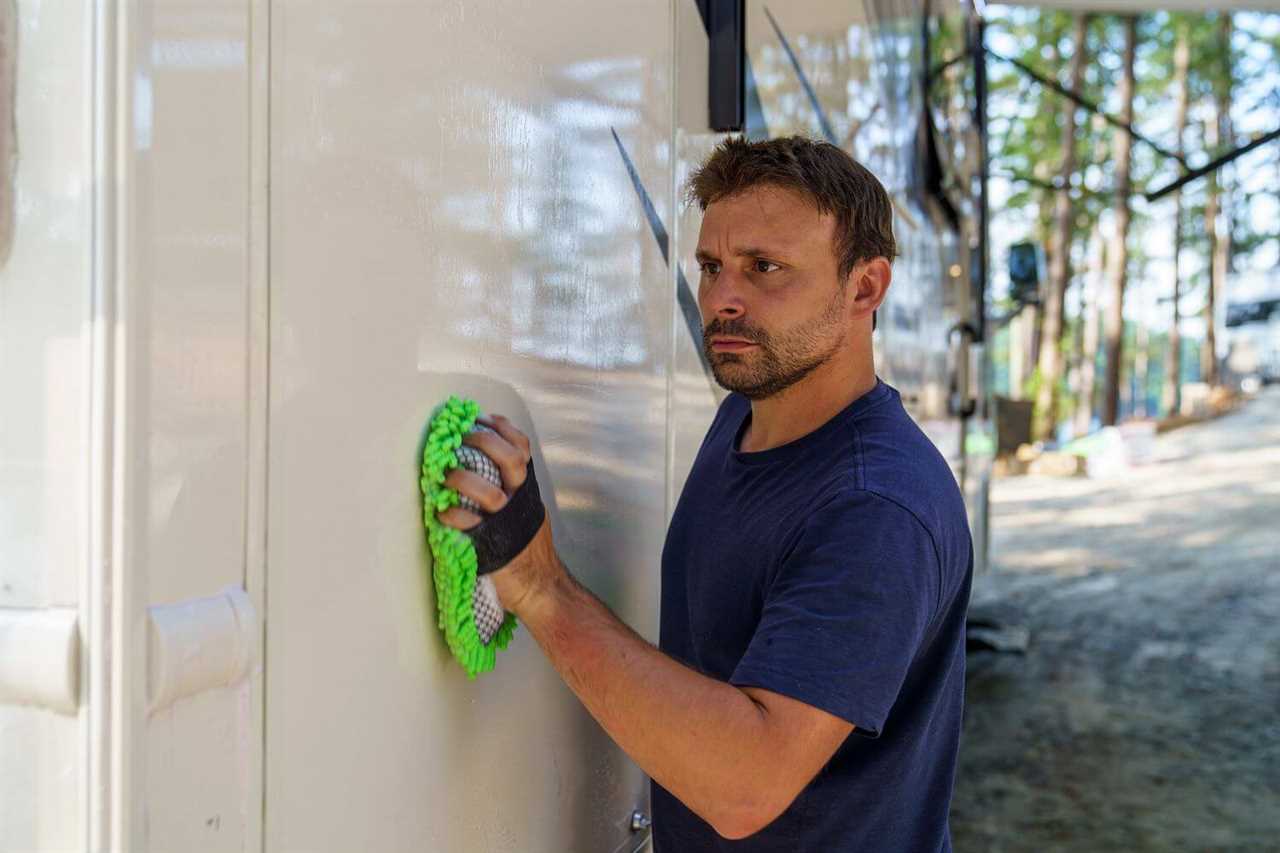
Photo by Camping World
If you’re willing to price your RV at or below its listed value and market it aggressively, you should sell it fairly quickly. However, that will depend on the year, make, model, and condition of your motorized or towable RV. Advertising in popular places like Craiglist or Facebook Marketplace can speed up sales. But these marketplaces often come with casually interested buyers that waste your time or, in the worst cases, are outright scams.
When selling your RV yourself, you’ll also be responsible for the legwork required to prepare your RV for sale. You’ll need to be available to show your RV to prospective buyers, and this could eat into your personal time. Plus, you’ll have to handle all the necessary documentation on your own, and ensuring this is done correctly can be a headache.
That’s why many used RV owners opt to sell, consign, or trade-in their RV to a dealership.
Selling your RV to a Camping World dealership gives you cash in hand. Consigning means letting Camping World do the leg work of selling your RV. When the sale is complete, they write you a check minus a commission fee.
Trading in your RV at Camping World allows you to take money off your next RV purchase with Camping World so you can start shopping for an upgrade, assuming you don’t owe anything on the RV you’re trading in versus the unit you’re purchasing.
How to Determine the Value of your RV

Photo by Good Sam
Many factors impact your RV’s resale value but accessing real-time data that influences your sale price is a challenge for private sellers. That’s why you can utilize the Good Sam RV valuator to check your RV’s value in seconds.
The valuator tool pulls the latest demand trends from your local marketplace and data from new and used RV wholesale pricing. It combines that data with its own proprietary dataset, which includes unique, vintage, and customized RVs, to provide an accurate value for your RV.
Learning the value of your RV is the logical first step, whether you’re selling privately or to a local dealership. But if you decide to consign with Camping World, which offers a nationwide network of dealerships, the valuator tool is even more beneficial.
You can use it to assess your RV’s value across all markets in the US. So if you consign your RV with Camping World, they can transport it to buyers in other markets and sell it faster for you where demand is high.
To find the value of your RV using the Good Sam RV Valuator, you’ll need the year, make, model, trim, number of slides, and condition of your RV. Once you submit that info, a specialist will be in contact with a quote range.
Use the Good Sam RV Valuator to find the value of your used RV today.
Selling Private
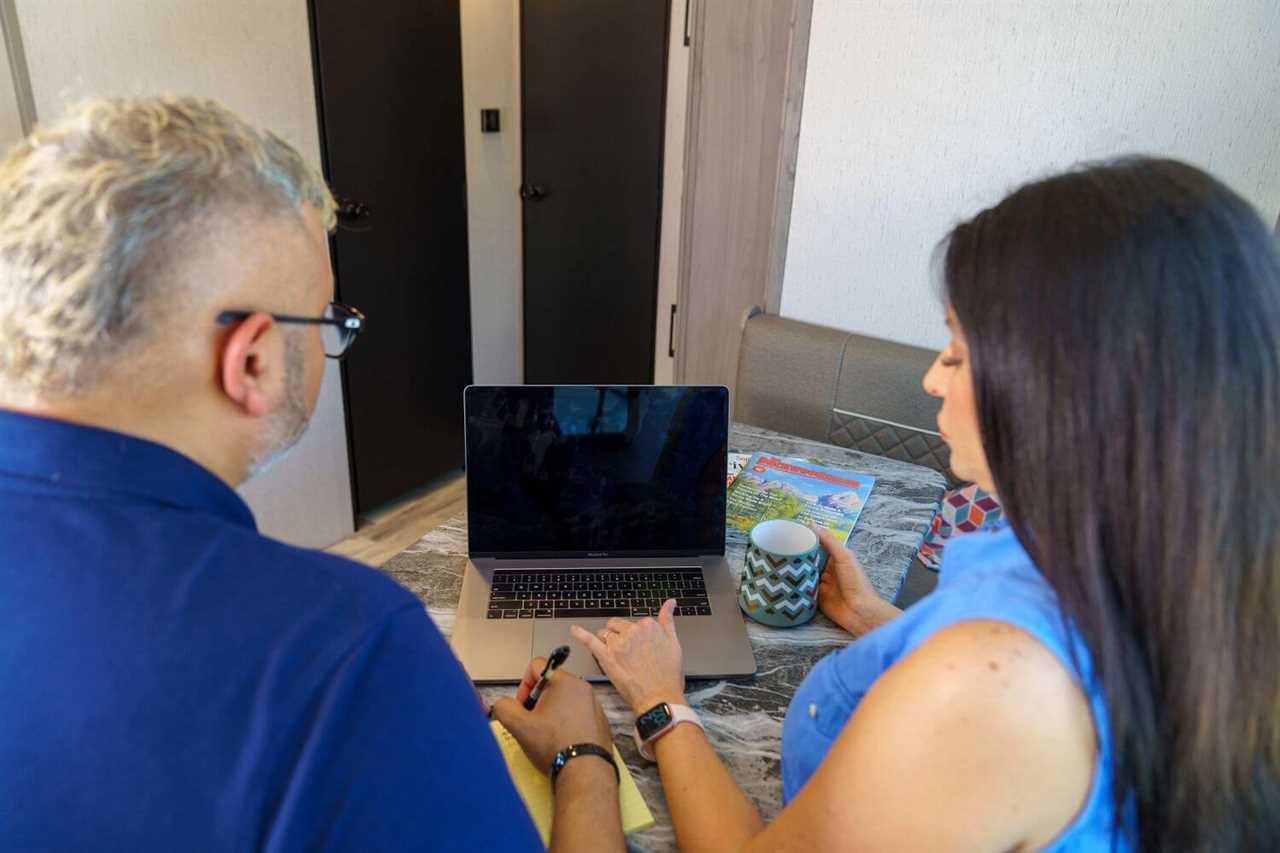
Photo by Camping World
Selling your RV privately avoids a dealership commission. You’ll receive the full sale price, and you have the final say on the offer you ultimately accept. You’ll also avoid contracts with a dealer or insurance company and control where and how your RV is advertised.
But the downsides of selling privately include:
- You’re limited to prospective buyers in your immediate area, who may not be willing to pay as much as buyers in other markets.
- It can take a long time for the right buyer to arrive.
- You must spend valuable time creating ads, showing the RV to prospective buyers, and reviewing offers.
- You’re responsible for cleaning and making RV repairs before listing.
- You take on all the liability if something breaks after the sale and the buyer wants to sue.
- You’re limited in terms of accepting financed offers.
Selling on Consignment
Selling a used RV on consignment means entering a relationship with another party to help you sell. This party is usually a local dealer that keeps the RV on their property, advertises for you, and receives a share of the sale price when a deal is finalized.
Here are the main benefits of selling a used RV on consignment with Camping World:
- Utilize the dealer’s marketing resources, which are usually greater than your own.
- Don’t spend your own time showing your RV to each mildly interested buyer.
- Dealers follow nationwide guidelines on RV resale value.
- Dealers have the incentive to sell your RV as quickly as possible.
- Dealers can accept financing or trade-ins.
- Your RV receives more exposure through the dealer’s website and traffic on their lot.
Of course, selling on consignment comes with extra costs, and you’ll have to give up a commission to the dealer. Other potential costs include consignment insurance, RV prep and cleaning, and any required repairs before your RV can be listed. Once you sign a contract with a consignment dealer, you can’t sell your RV anywhere else, and you won’t be able to use it while it’s being advertised.
Consigning with Camping World
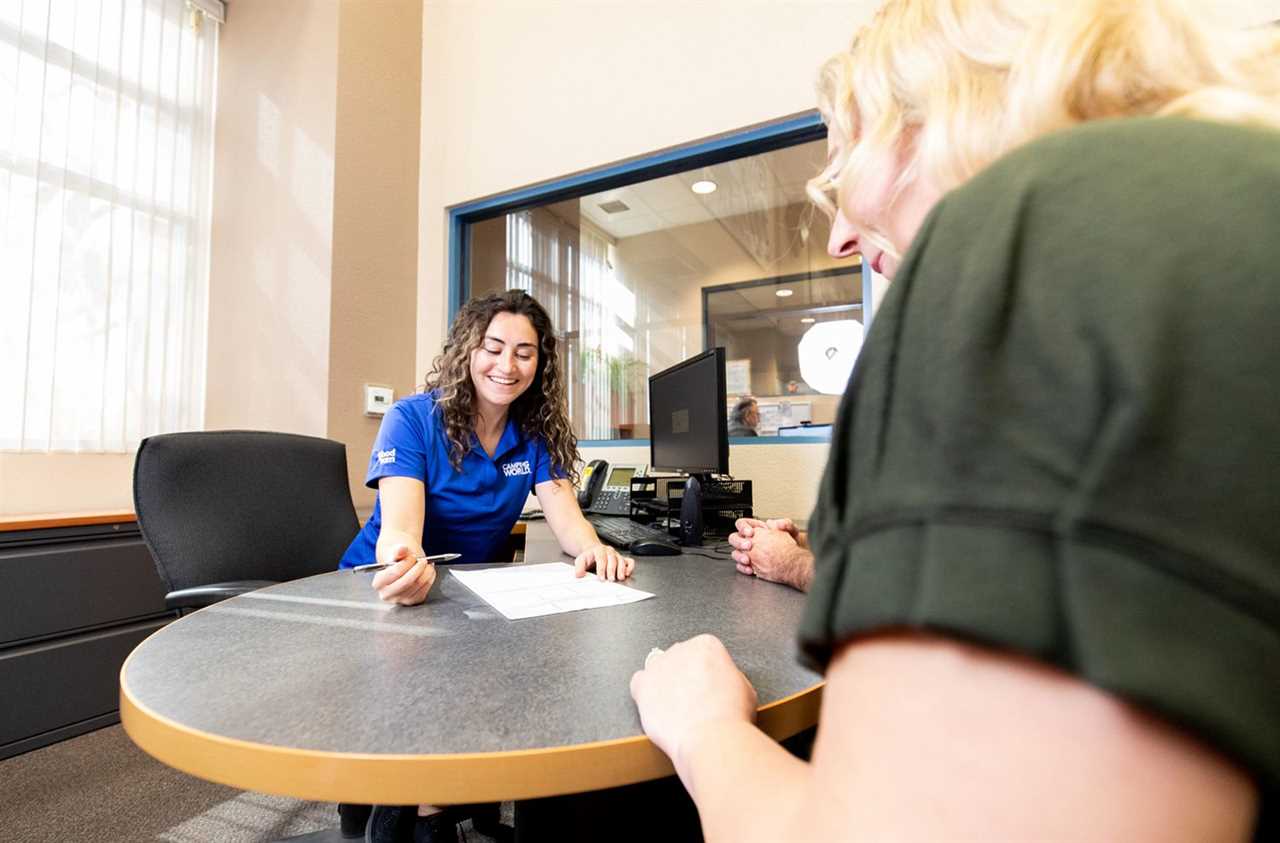
Photo by Camping World
Consigning with Camping World eliminates much of the pre-sale preparation on your end. Camping World handles:
- Cleaning and photographing your RV.
- Listing it on our nationwide marketplace.
- Answering buyer questions seven days a week.
- Showing your RV to prospective buyers.
- Handling the paperwork.
- Negotiating financing terms through local and national banks.
- Satisfying any outstanding loans.
- Writing you a check when the sale is final.
Selling Directly to the Dealership
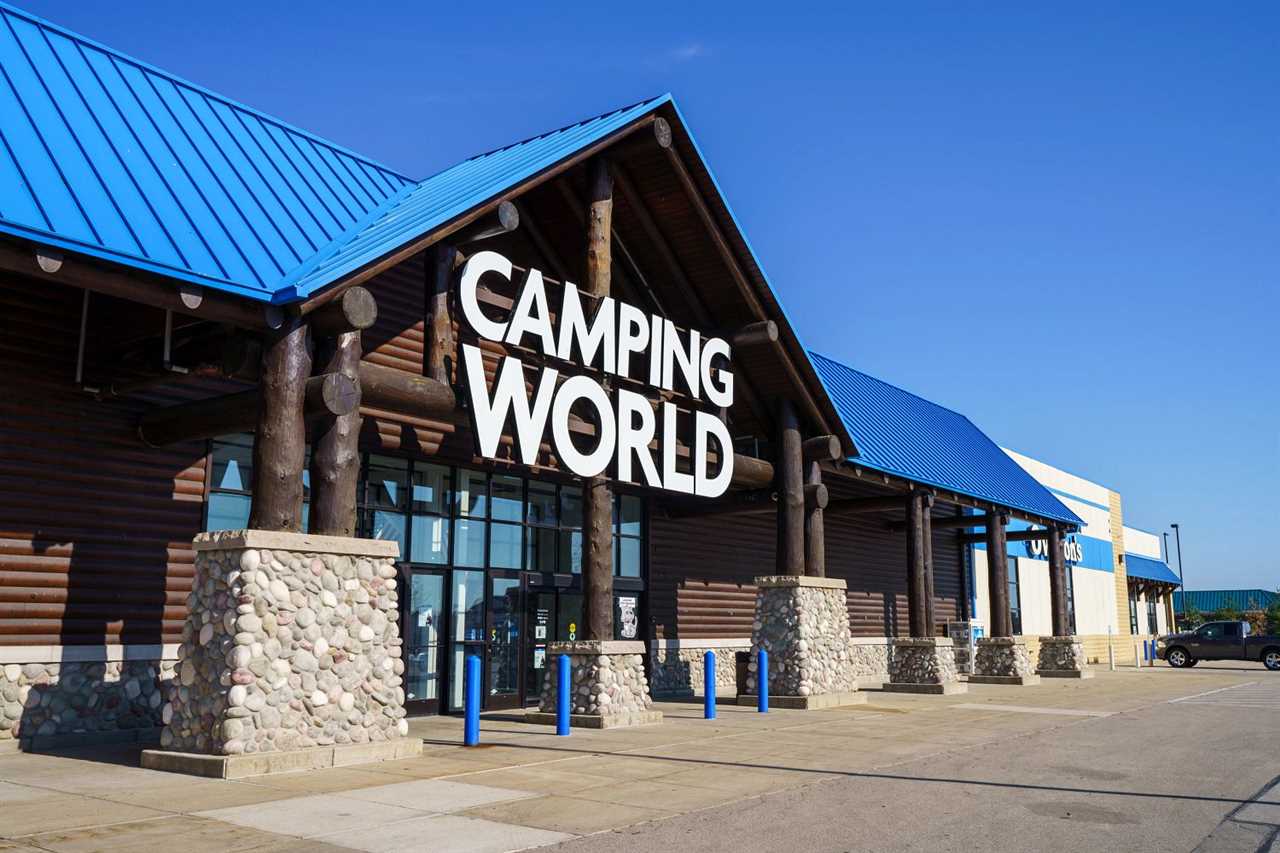
Photo by Camping World
If you’re looking to sell your RV quickly, making a deal directly with a dealership can be your best bet. Go around and get quotes from several dealers in your area.
Camping World will give you $1,000 cash if they can’t match a price provided by another dealer.*
*This promotion is not available in all 50 states. Contact your local Camping World for details.
They’ll also cut you an immediate check if your RV is valued under $30,000. So you’ll have cash in hand to put toward your next RV.
These are just a few ways Camping World makes buying and selling RVs smooth and efficient so you can get back on the road for your next adventure as quickly as possible.
Contact an RV specialist about selling your RV today.
Trading In Your RV
Trading in your RV allows you to deduct the value of your used RV from any taxes owed on a new or used unit. The offer you receive from a dealership largely depends on how well you’ve cared for your used RV over the years.
When you bring your used RV to trade it in at Camping World, a representative will perform an RV walkaround with you. This process is designed to uncover things like delamination, worn tires, and anything else that can decrease the value of your trade-in.
That’s why it benefits you to complete repairs and thoroughly clean your used RV to prep it for a trade-in. The list of recommended repairs varies, but some items to consider include replacing torn screens, replacing worn parts or components, and testing electrical outlets for proper voltage.
Learn how to get the most for your trade-in and explore the benefits of trading your RV in with Camping World.
Selling an RV With a Title
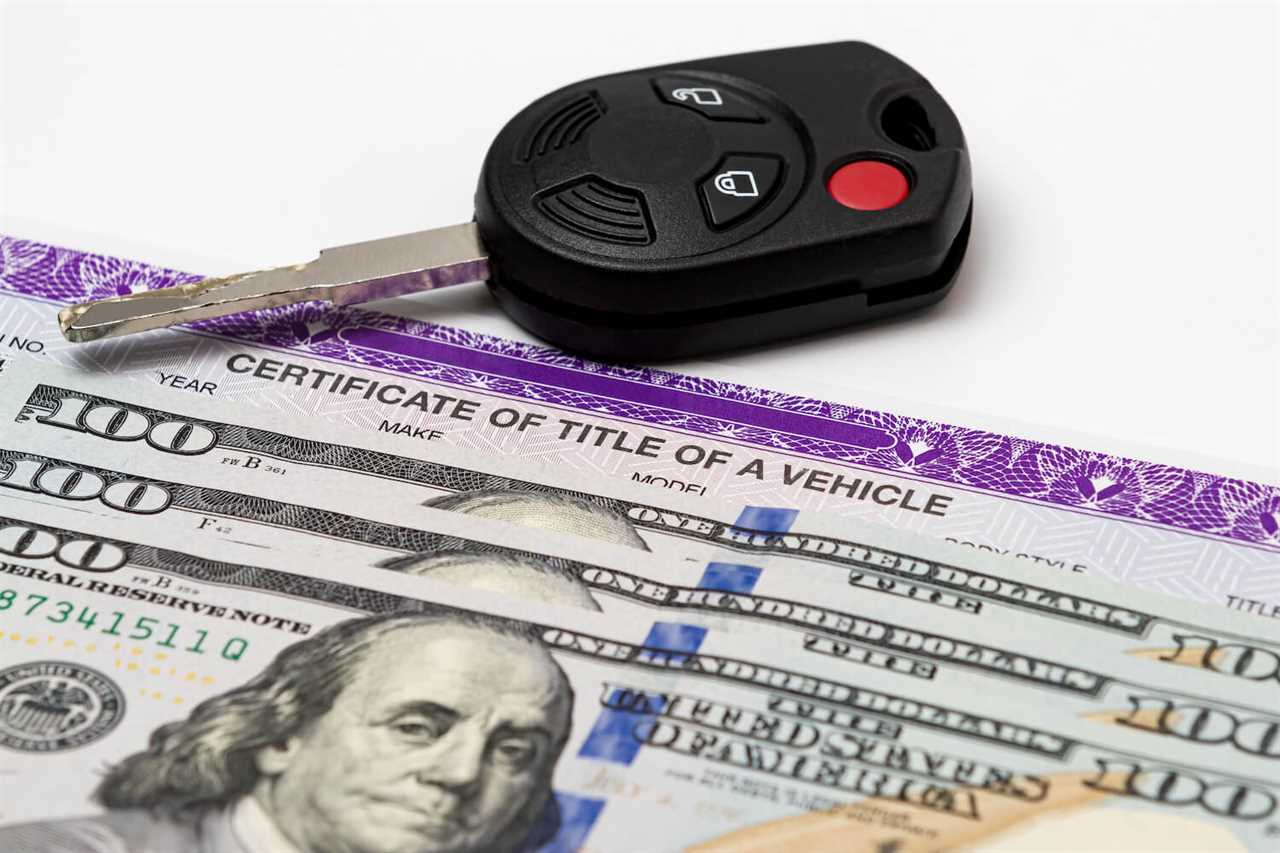
Photo by JJ Gouin via Shutterstock
Selling an RV with a title is the easy way to go. When you’ve found your buyer, you’ll need to complete a transfer of title, bill of sale, and any other documentation required in your state. Upon finalizing your sale, you should complete your release of liability as soon as possible.
When selling privately, it’s a good idea to accept cashier’s checks or certified bank checks. This allows your bank to check with the issuing financial institution to ensure the check’s validity. Check with your bank before executing a sale on their procedure for verifying checks and complete your transaction during regular banking business hours.
NEVER hand over the title until the funds have been received, and ensure the buyer signs both the title and the bill of sale upon receipt of payment.
Whether selling with or without a title, most states legally require sellers to disclose any major accidents or issues with their RV. Withholding information simply opens you up to a potential lawsuit down the line.
Selling an RV Without a Title

Photo by fizkes via Shutterstock
It’s still legally possible to sell your RV if you’ve misplaced your title. You will need to obtain a replacement title from your local DMV by filling out a title application and paying the required fee.
You can mail your title application to your local DMV, which will check to ensure they can issue a new title. Their checks include ensuring the vehicle isn’t stolen and checking your title has no pending legal issues. They will also check that your RV meets all state vehicle requirements, such as weight checks and emissions testing.
From there, you’ll need three other pieces of documentation for a replacement or bonded title:
- Your RVs certificate of origin from the original manufacturer.
- A bill of sale from when you purchased the camper.
- A certificate of inspection from an approved state inspection station.
You’ll need to take your title application, these three documents, your driver’s license, and any required application fee to your local DMV to be issued a replacement title.
But remember that each state’s DMV has unique requirements. So consult your local office before scheduling an appointment for a replacement RV title.
How to Prepare your Used RV For Sale
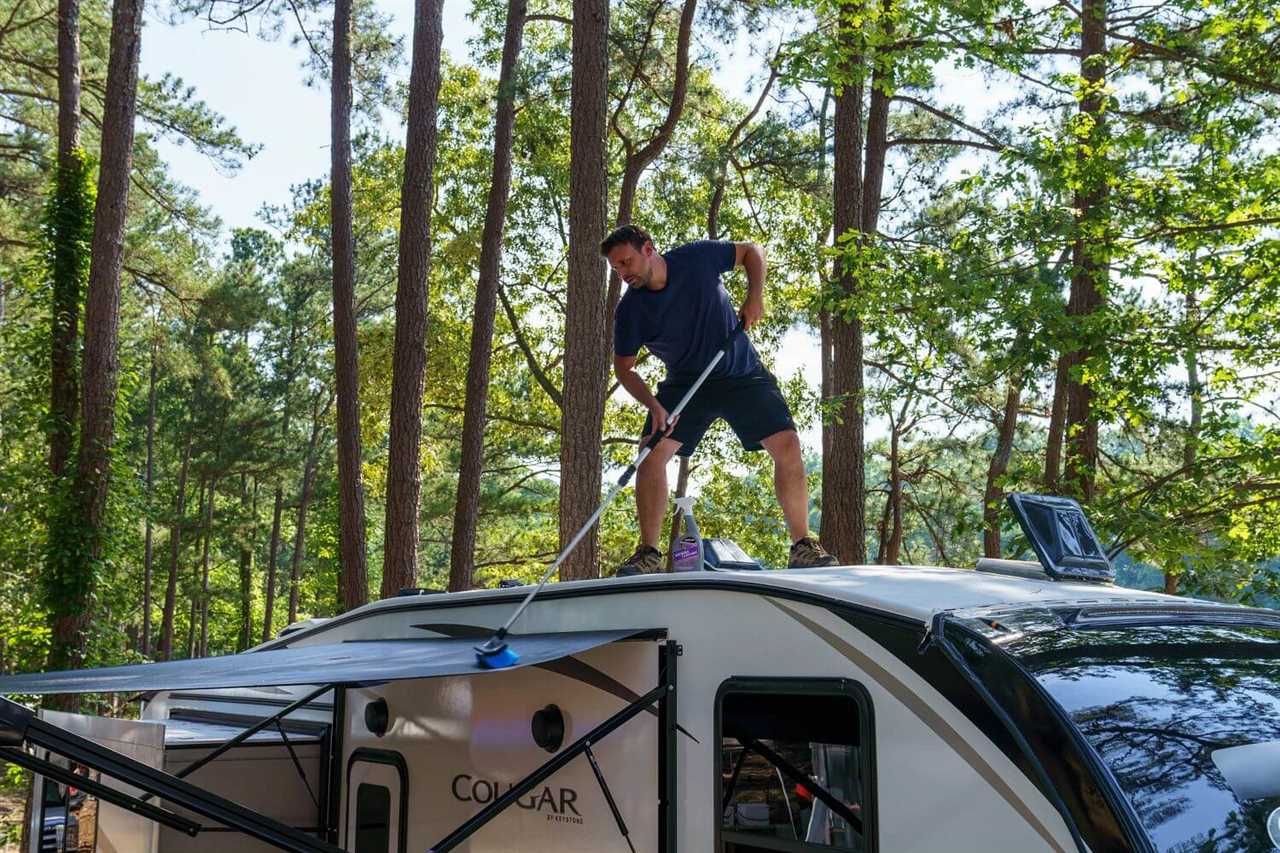
Photo by Camping World
Regardless of how you decide to sell a used RV, these tips can help you get the best return on your original investment:
- Address any major repairs. Some buyers will look past minor cosmetic issues, but major problems like a broken awning or worn tires make finalizing a sale more difficult.
- Give it a deep cleaning. Like selling a home, you want buyers to be impressed with your used RV’s look, feel, and smell from the instant they walk in. Wash your RV inside and out for the best presentation.
- Take high-quality photos. RVs are hard to photograph, but a wide-angle lens can be helpful at really showcasing the space.
- Gather your documentation. Ensure you have your title, registration, bill of sale, owner’s manuals, and any other documentation present and organized before listing your RV for sale.
- List your RV in multiple places. Using more advertising networks increases your odds of finding the right buyer.
If you’re ready to sell, complete this form, and we’ll contact you with the next steps. But you might also be interested in a few more tips for getting the most money when selling your RV.
And if you want to sell to upgrade, check out Camping World’s selection of RVs for sale.
Do you have any questions about how to sell a used RV or trailer? Let us know in the comments below!
By: Tucker Ballister
Title: How to Sell a Used RV
Sourced From: blog.campingworld.com/rv-basics/finding-your-rv/how-to-sell-a-used-rv/
Published Date: Thu, 27 Oct 2022 16:17:12 +0000
---------------------------------------------
 CampingSurvivalistHuntingFishingExploringHikingPrivacy PolicyTerms And Conditions
CampingSurvivalistHuntingFishingExploringHikingPrivacy PolicyTerms And Conditions
